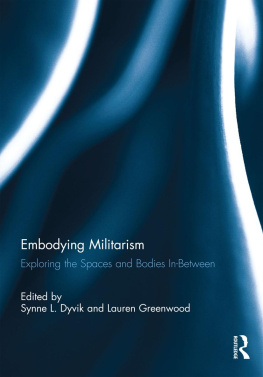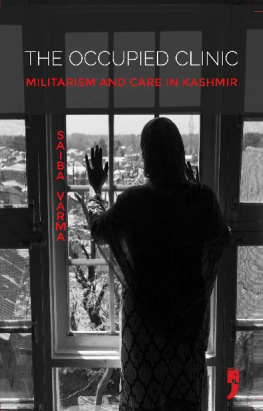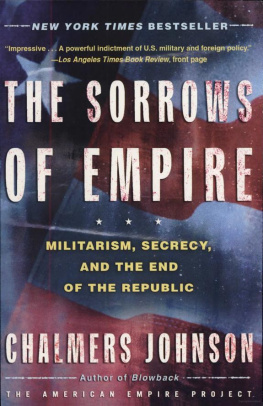Karl Liebknecht - Militarism and Anti-Militarism
Here you can read online Karl Liebknecht - Militarism and Anti-Militarism full text of the book (entire story) in english for free. Download pdf and epub, get meaning, cover and reviews about this ebook. year: 1973, publisher: Marxists Internet Archive, genre: Politics. Description of the work, (preface) as well as reviews are available. Best literature library LitArk.com created for fans of good reading and offers a wide selection of genres:
Romance novel
Science fiction
Adventure
Detective
Science
History
Home and family
Prose
Art
Politics
Computer
Non-fiction
Religion
Business
Children
Humor
Choose a favorite category and find really read worthwhile books. Enjoy immersion in the world of imagination, feel the emotions of the characters or learn something new for yourself, make an fascinating discovery.

- Book:Militarism and Anti-Militarism
- Author:
- Publisher:Marxists Internet Archive
- Genre:
- Year:1973
- Rating:3 / 5
- Favourites:Add to favourites
- Your mark:
- 60
- 1
- 2
- 3
- 4
- 5
Militarism and Anti-Militarism: summary, description and annotation
We offer to read an annotation, description, summary or preface (depends on what the author of the book "Militarism and Anti-Militarism" wrote himself). If you haven't found the necessary information about the book — write in the comments, we will try to find it.
Militarism and Anti-Militarism — read online for free the complete book (whole text) full work
Below is the text of the book, divided by pages. System saving the place of the last page read, allows you to conveniently read the book "Militarism and Anti-Militarism" online for free, without having to search again every time where you left off. Put a bookmark, and you can go to the page where you finished reading at any time.
Font size:
Interval:
Bookmark:
with special regard to the International Young Socialist Movement
Written: 1907.
Translated: Grahame Lock.
Publisher: Rivers Press Limited, Cambridge, 1973.
Transcription/Markup: Einde OCallaghan for the Marxists Internet Archive.
Online Version: Karl Liebknecht Internet Archive (marxists.org) 2002.
Copyright: Rivers Press 1973. Reproduced here by kind permission of Grahame Lock & Rivers Press Limited.
Formatted to EPUB by Ian Schlom 2021.
[Modern militarism] wants neither more nor less than the squaring of the circle; it arms the people against the people itself; it is insolent enough to force the workers ... to become oppressors, enemies and murderers of their own class comrades and friends, of their parents, brothers, sisters and children, murderers of their own past and future. It wants to be at the same time democratic and despotic, enlightened and machine-like, at the same time to serve the nation and to be its enemy.
Karl LiebknechtKarl Liebknecht Internet Archive
Last updated on: 7 February 2017
A few weeks ago Die Grenzboten reported a conversation between Bismarck and Professor Dr Otto Kmmel which took place in October 1892, and in which Bismarck, the Hero of the Century, himself tore off the mask of constitutionalism in his very own cynical style. Among other things, he said:
In Rome, whoever put himself outside of the law was banished, aqua et igne interdictus; in the Middle Ages he was said to be outlawed. Social-Democracy ought to be treated in a similar way: it should be deprived of its political rights, of its right to participate in elections. I would have gone that far. The Social-Democratic problem is in fact a military problem. Social-Democracy is being treated with an extraordinary lack of serious attention at present. It is now attempting with success to win over the non-commissioned officers. In Hamburg a large part of the troops already consists of Social-Democrats, since the local people have the right to join only the local battalions. What if these troops should one day refuse to obey the Kaiser and to fire on their fathers and brothers? Would we then be forced to mobilize the Hanover and Mecklenburg regiments against Hamburg? In that case we should have something like the Paris Commune on our hands. The Kaiser then took fright. He told me that he did not want one day to be called the Karttschenprinz the shrapnel prince like his grandfather, and did not want to wade up to his ankles in blood at the very beginning of his reign. At the time I told him: Your Majesty will have to go in much deeper if you draw back now!The Social-Democratic problem is a military problem. This is the whole point; it says more and goes much deeper than von Massow s cry of distress: Our only hope is the bayonets and cannons of our soldiers. by the Hamburger Nachrichten and the thoroughbred Junker, von Oldenburg-Januschau, would have had his eyes opened by the Hohenlohe-Delbruck revelations which were corroborated around the end of the year through the county court judge Kulemann, and by the cruel words of Bisrnarck cited above.
The Social-Democratic problem in so far as it is a political problem is in the last resort a military problem. This should be a constant reminder to Social-Democracy and a tactical principle of the first rank.
The enemy at home, Social-Democracy, is more dangerous than the enemy abroad, because it poisons the soul of our people and wrests the weapons from our hands before we have even lifted them. This is how the Kreuz-Zeitung of January 21, 1907, proclaimed the sovereignty of class interests over national interests in an electoral struggle which was waged under the banner of nationalism! And this electoral struggle was carried on in the face of an ever-increasing menace to electoral and trade-union rights, and of Bonapartes sword, which Prince Blow Only someone who was blind and deaf could deny that these signs, as well as many others, indicate the approach of a storm or even of a hurricane.
The problem of the struggle against militarism at home has therefore taken on an importance of a most pressing kind.
The elections of 1907 were, however, also fought on the national question, on the colonial question, and over chauvinism and imperialism. And they showed how miserably weak, in spite of all this, was the resistance of the German people to the pseudo-patriotic rat-traps laid by these contemptible business patriots. They taught us what pompous demagogy can be pressed into use by the government, by the ruling classes and by the whole howling pack of patriots whenever things most holy are concerned. These elections provided the proletariat with some necessary enlightenment, causing it to question its own role and teaching it about the relation of social and political forces. They educated it, and freed it from the unfortunate habit of victory; and they excited a welcome force resulting in a deepening of the proletarian movement and of our understanding of the psychology of the masses with regard to national campaigns. Certainly the causes of our so-called setback, which was actually not a setback and puzzled the victors more than the vanquished, were manifold; but there is no doubt that precisely those sections of the proletariat which are contaminated and influenced by militarism, which are already at the mercy of government terrorism for example, the state workers and junior officials have formed an especially firm obstacle to the extension of Social-Democratic influence.
This also raises sharply, as far as the German labour movement is concerned, the question of anti-militarism and the question of the youth movement and of the education of young people, and ensures that these points will receive more attention in future.
The following work is the elaboration of a paper read by the author on September 30, 1906, to the first conference of the German Young Socialist League in Mannheim. It does not pretend to offer something new; it is simply intended to be a compilation of material which is already known or even commonplace. Nor does it claim to be exhaustive. The author has attempted, as far as he is able, to collect the disconnected material scattered throughout the newspapers and periodicals. Thanks above all to our Belgian comrade de Man it has been possible to provide at least a brief account of the and-militarist and youth movement in the most important countries.
If here and there errors have crept in, they should be excused on account of the difficulty of coping with the material, but also on account of the frequent unreliability of the sources, which are often even contradictory.
In the realm of militarism things are in constant flux at the present time, so that, for example, the information given below on the French and English military reforms will certainly soon be overtaken by events.
That is even more true of anti-militarism and the proletarian youth movement, the newest manifestations of the proletarian struggle for freedom, which are everywhere developing quickly, and making pleasing headway in spite of setbacks. Since this work was set up in type it has been learned that the Finnish Young Socialist Societies held their first congress in Tammerfors on December 8 and 9, 1906, where a Young Workers League was founded which will be attached to the Finnish Labour Party and whose special task, apart from the education of the young workers in class-consciousness, will be the struggle against militarism in all its aspects.
People will be inclined to complain that the theoretical basis of our work is too slight and the historical depth not sufficient. Against this it ought to be said that the pamphlet has a topical political task, that of promoting anti-militarist thought.
Font size:
Interval:
Bookmark:
Similar books «Militarism and Anti-Militarism»
Look at similar books to Militarism and Anti-Militarism. We have selected literature similar in name and meaning in the hope of providing readers with more options to find new, interesting, not yet read works.
Discussion, reviews of the book Militarism and Anti-Militarism and just readers' own opinions. Leave your comments, write what you think about the work, its meaning or the main characters. Specify what exactly you liked and what you didn't like, and why you think so.






